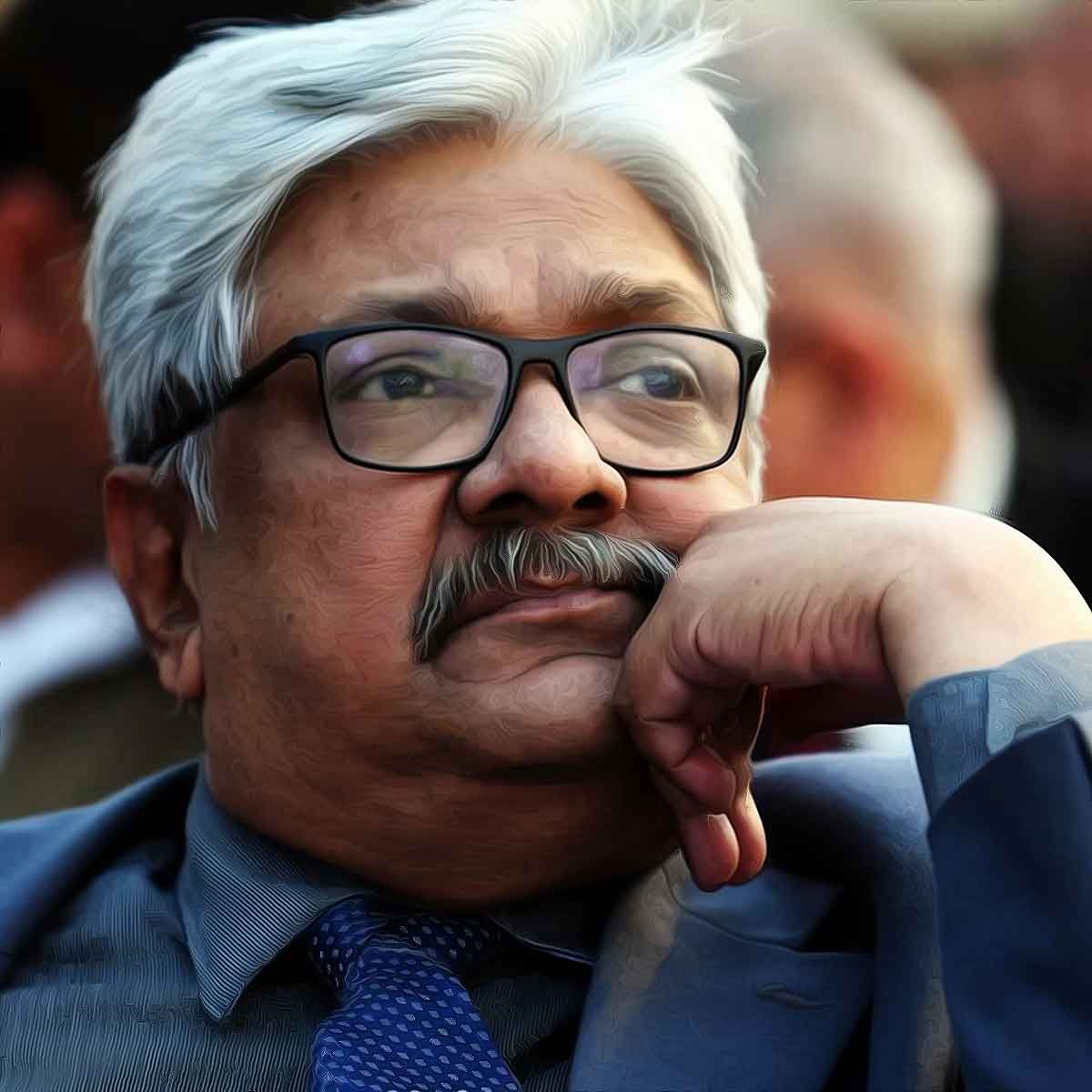More Coverage
Twitter Coverage
JOIN SATYAAGRAH SOCIAL MEDIA
"It is not wisdom but Authority that makes a law": SC orders new rules for appointment of Chief Election Commissioner and Election Commissioners similar to appointment of CBI Director by a committee that includes the PM, Leader of Opposition and CJI

The Supreme Court on Thursday held that the appointment of members of the Election Commission of India (ECI) should be done on the advice of a committee comprising the Prime Minister, Chief Justice of India and the Leader of Opposition (or the leader of single largest opposition party) in the Lok Sabha [Anoop Baranwal v. Union of India and ors].
|
A Constitution Bench of Justices KM Joseph, Ajay Rastogi, Aniruddha Bose, Hrishikesh Roy and CT Ravikumar said that this would be the setup until the Central government comes up with a law on appointments.
It said,
"The Election Commissioners will be appointed by the President of India on the advice of a committee consisting of the Prime Minister, and leader of Opposition in Lok Sabha, or leader of largest opposition party in cases where there is not enough numerical strength for a leader of opposition, and the Chief Justice of India.
Watch the operative part of the Judgment here:
|
This law will continue to hold good until a law is made by Parliament. The Court asks the government to make a necessary change with regard to funding of the Election Commission from the Consolidated Fund of India and the need for separate Secretariat."
The Court rendered its decision on a batch of pleas challenging the current system of appointing members of the ECI on the ground that the executive enjoys the power to make appointments in violation of Article 324(2) of the Constitution of India.
The said provision states:
"The Election Commission shall consist of the Chief Election Commissioner and such number of other Election Commissioners, if any, as the President may from time to time fix and the appointment of the Chief Election Commissioner and other Election Commissioners shall, subject to the provisions of any law made in that behalf by Parliament, be made by the President."
In the judgment pronounced by Justice Jospeh, the Court noted that there is a huge surge in the role of money power and criminalization of politics and that a large section of the media has abdicated its role and become partisan.
On the independence of the ECI, it stated,
"An Election Comission that does not guarantee rule of law is against democracy. In its wide spectrum of powers, if exercised illegally or unconstitutionally, it has an effect on the outcomes of political parties...
...Election Commission has to be independent, it cannot claim to be independent and then act in an unfair manner. A person in the state of obligation to the State cannot have an independent frame of mind. An independent person will not be servile to those in power."
It also pointed out that several decades had passed, and political parties had not introduced a separate law to govern appointments to the ECI.
"Article 324 has a unique background. Several decades have passed by. Political parties of varying hues have not introduced a law. A law cannot be perpetuation of what is existing, of the executive having the absolute say in appointments. There is a lacuna as the petitioners have pointed out. Political parties would have a reason to not seek a law, which is clear to see. A party in power will have an insatiable quest to remain in power through a servile Commission."
Justice Rastogi added that the removal of the Chief Election Commissioner should be in a like manner and on like grounds as a judge of the Supreme Court.
Further, the removal of election commissioners would be made only on the recommendation of the Chief Election Commissioner. He further opined that it was desirable that grounds for removal of other election commissioners shall be the same as the Chief.
"Grounds of removal of Election Commissioners should be the same as that of CEC, service conditions should not be varied ... Election Commissioners have to be kept free from executive interference."
During the course of the hearing, the Bench had asked Attorney General (AG) for India R Venkataramani if the existing practice of appointing bureaucrats on the verge of retirement, was rational.
It had also observed that political parties in power at the Centre force Chief Election Commissioners (CEC) to do their bidding so as to remain in power, thereby, compromising the independence of the Election Commission.
The Court had suggested the inclusion of the Chief Justice of India (CJI) in the committee appointing the CEC. Justice Joseph had said that Article 326 of the Constitution gives citizens the right to vote, and it cannot be overruled by the ancillary law-making powers of Parliament.
Pertinently, the Bench had even questioned the Central government as to what the tearing hurry was to appoint Arun Goel as an Election Commissioner a few months ago, and how the names were even shortlisted before his selection.
Justice Joseph pointed out to the existing legal provisions provide for separate terms for Election Commissioners (ECs) and the Chief Election Commissioner (CEC), and not a total or maximum of six years, as has been the practice recently.
In this context, the Court had asked under what law was the practice of choosing CECs by virtue of ECs being promoted being followed.
The Supreme Court had reserved its verdict in the matter on November 24 last year.
Watch the full hearing of the Judgment below:
Appointment of CEC in India
CEC heads the Election Commission of India and is appointed by the President. CEC is mostly an IAS officer. Once elected, it is not easy to remove the CEC from its post as two-thirds of the Lok Sabha and Rajya Sabha must be present to vote against him/her.
References:
 Support Us
Support Us
Satyagraha was born from the heart of our land, with an undying aim to unveil the true essence of Bharat. It seeks to illuminate the hidden tales of our valiant freedom fighters and the rich chronicles that haven't yet sung their complete melody in the mainstream.
While platforms like NDTV and 'The Wire' effortlessly garner funds under the banner of safeguarding democracy, we at Satyagraha walk a different path. Our strength and resonance come from you. In this journey to weave a stronger Bharat, every little contribution amplifies our voice. Let's come together, contribute as you can, and champion the true spirit of our nation.
 |  |  |
| ICICI Bank of Satyaagrah | Razorpay Bank of Satyaagrah | PayPal Bank of Satyaagrah - For International Payments |
If all above doesn't work, then try the LINK below:
Please share the article on other platforms
DISCLAIMER: The author is solely responsible for the views expressed in this article. The author carries the responsibility for citing and/or licensing of images utilized within the text. The website also frequently uses non-commercial images for representational purposes only in line with the article. We are not responsible for the authenticity of such images. If some images have a copyright issue, we request the person/entity to contact us at This email address is being protected from spambots. You need JavaScript enabled to view it. and we will take the necessary actions to resolve the issue.
Related Articles
- Uphaar Cinema fire was one of the worst fire tragedies in recent Indian history: Association of Victims of Uphaar Fire Tragedy (AVUT) filed a landmark case considered a breakthrough in civil compensation law in India
- "Justice for sale, affordability varies": In an escalating controversy, Udhayanidhi Stalin's fierce criticisms of Sanatana Dharma lead to public uproar & legal petitions, Supreme Court denies expedited hearing, ‘Won’t allow it, follow standard procedures’
- Controversial Marxist leader Brinda Karat reaches Jahangirpuri to implement Supreme Court order, fanatic Leftist journos outrage over order not being followed immediately and took to Twitter to attack NDMC officials
- "No neutrality, there is only greater or lesser awareness of one's bias": Joshimath Sinking - Supreme Court refuses urgent hearing, "there are democratically elected institutions to look into issue & everything of urgency does not have to come to court"
- In another shocker, Supreme Court quotes 'every sinner has a future' and commutes death sentence of Mohd Firoz for rape & murder of 4-year-old girl: Child brutally assaulted, two teeth broken while smothering after rape
- “Man cannot be freed by the same injustice that enslaved it”: Supreme Court stays Uttarakhand High Court order on Haldwani eviction, and disapproved the manner in which eviction was sought to be carried out by the Indian Railways, urges rehabilitation
- "The miracle isn't that I finished. The miracle is that I had the courage to start": 49th Chief Justice of India, Uday Umesh Lalit's short tenure is a race against time with big plans lined up, he intends to meet head-on the challenges confronting SC
- "Freedom is whatever the Court says it is, pending revision": Kiren Rijiju in Rajya Sabha, "Until we create a new system for Appointment of Judges, issue of Judicial Vacancies will continue to arise which is a big reason for the huge pendency of cases"
- In a court case involving rioting, arson, and vandalism during Patidar quota agitation, Gujarat Congress’ president Hardik Patel gets a stay from Supreme Court so he can contest elections: Patel was sentenced to two years in jail
- "Action speaks louder than words": Amidst rising tension in Manipur, the Supreme Court steps in, forming an all-women judicial committee to ensure justice. While incidents in other states might be overlooked, Manipur won't be left in the shadows






















